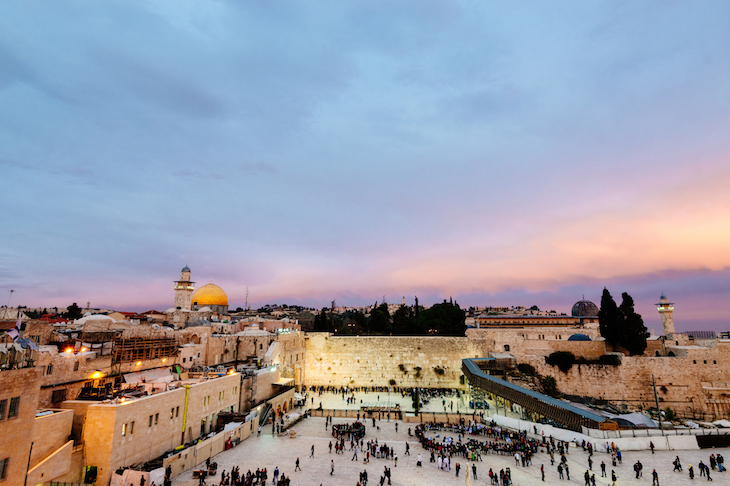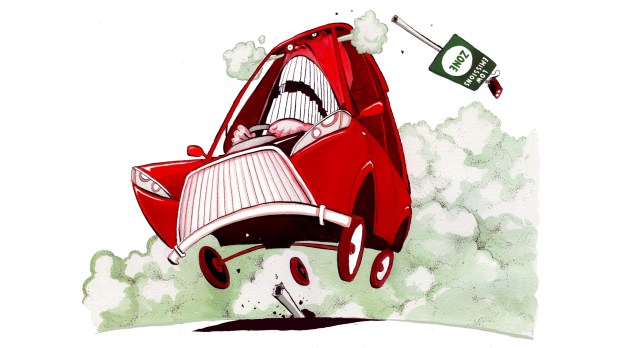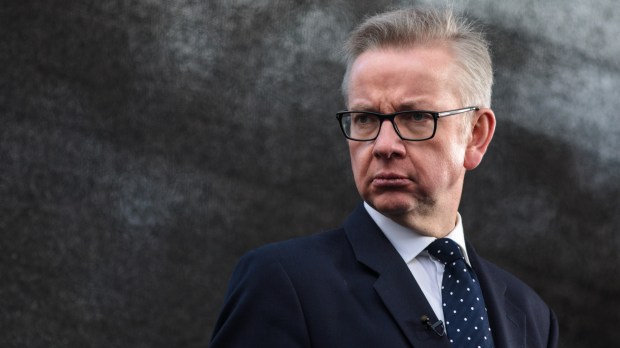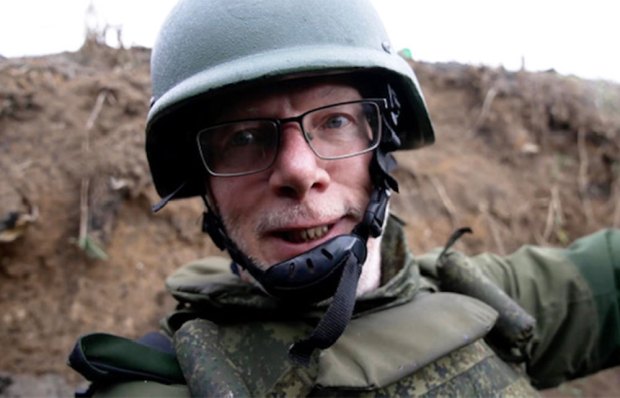I’m currently in Israel on a press trip organised by Bicom — the Britain Israel Communications and Research Centre. Bicom does a good job of getting experts on the Israeli-Palestinian conflict to give talks to journalists and I’ve attended a few in their London offices. But this is the first time I’ve been on one of their legendary excursions to the Holy Land, which they organise about six times a year. In essence, you’re given a whistle-stop tour of the country while being briefed at every turn by senior ministers and officials on both sides of the divide. It’s seventh heaven for foreign policy nerds, but I also have another reason for being here, which is to weigh up the pros and cons of emigrating to Israel.
Believe it or not, my entire family is eligible for citizenship under the Law of Return because Caroline’s father is Jewish. And the idea of moving here is genuinely appealing because I’ve been fanatically pro-Israel since falling in love with the place aged 17. I had just failed all my O-levels and was mooning about feeling like an outcast when my father decided to send me to a kibbutz. It turned out to be the perfect antidote to my adolescent funk.
I found everything about Israel, particularly its origins, deeply affecting, and in spite of not being Jewish I felt as if I’d discovered my people at last. I was inspired by the example of pioneering Zionists like Theodor Herzl to take control of my own destiny. I would return to England, retake my O-levels, go to a sixth form and, God help me, apply to Oxford. And when it all worked out, I felt as if Israel and the wonderful example of its founders had saved me and I swore an oath that I would always defend the country from its detractors. In the 37 years since, I have done my best to keep that promise and been back several times to renew my vows.
Many aspects of contemporary Israel make it an attractive place to live. It is a vibrant liberal democracy, the only truly democratic country in the Middle East. It has a first-rate higher education system, low unemployment and a booming economy. Sustained growth in GDP has transformed Tel Aviv into a sophisticated metropolis, with many of the same cultural amenities as London and New York, and the country is well equipped to withstand any major downturn in the global economy, being virtually self-sufficient in food production.
True, its cuisine is fairly basic, but if you like hummus, falafels and salad, which is all Caroline eats, you’ll get along fine. And it has plenty of newspapers, weekly news magazines and talk shows, so I could probably scratch out a living as a hack.
It’s not all milk and honey, mind you. We were given a briefing in Jerusalem’s Old City on Monday by a spokesman for the Israeli National Police who told us about the ‘stabbing intifada’, whereby more than 300 Palestinians have attempted to kill Israelis since October 2015. He told us that the day before, not 100 yards from where we were standing, an off-duty security guard was repeatedly stabbed by a 28-year-old man from the West Bank and later died of his wounds. Even though the police have become better at intercepting these lone wolves, the approach of Israel’s 70th anniversary on 28 May will see an escalation in violence, particularly as Donald Trump has announced he intends to mark the occasion by relocating the US embassy to Jerusalem. We met with a pollster on Tuesday who revealed that 35 per cent of the 4.2 million Palestinians in the West Bank and the Gaza Strip think ‘armed resistance’ is the most- effective means of establishing a Palestinian state.
The most hopeful peace initiative involves creating a separate Palestinian state to sit alongside Israel — the ‘two-state solution’ — but progress is painfully slow. Israel has fought between seven and ten wars in its 70-year history, depending on your definition of ‘war’, and will probably fight several more. No chance of its superb army ever being defeated, obviously, but the big argument against moving here is that my children would all have to do a stint in the Israeli Defence Force and might be killed in action.
There’s also the fact that I love my country and something pretty cataclysmic would have to happen to force me to leave, such as Labour winning the next election. This may be a dangerous part of the world, but I would feel a lot safer here than living under a Corbyn dictatorship.
Got something to add? Join the discussion and comment below.
Get 10 issues for just $10
Subscribe to The Spectator Australia today for the next 10 magazine issues, plus full online access, for just $10.
You might disagree with half of it, but you’ll enjoy reading all of it. Try your first month for free, then just $2 a week for the remainder of your first year.















Comments
Don't miss out
Join the conversation with other Spectator Australia readers. Subscribe to leave a comment.
SUBSCRIBEAlready a subscriber? Log in